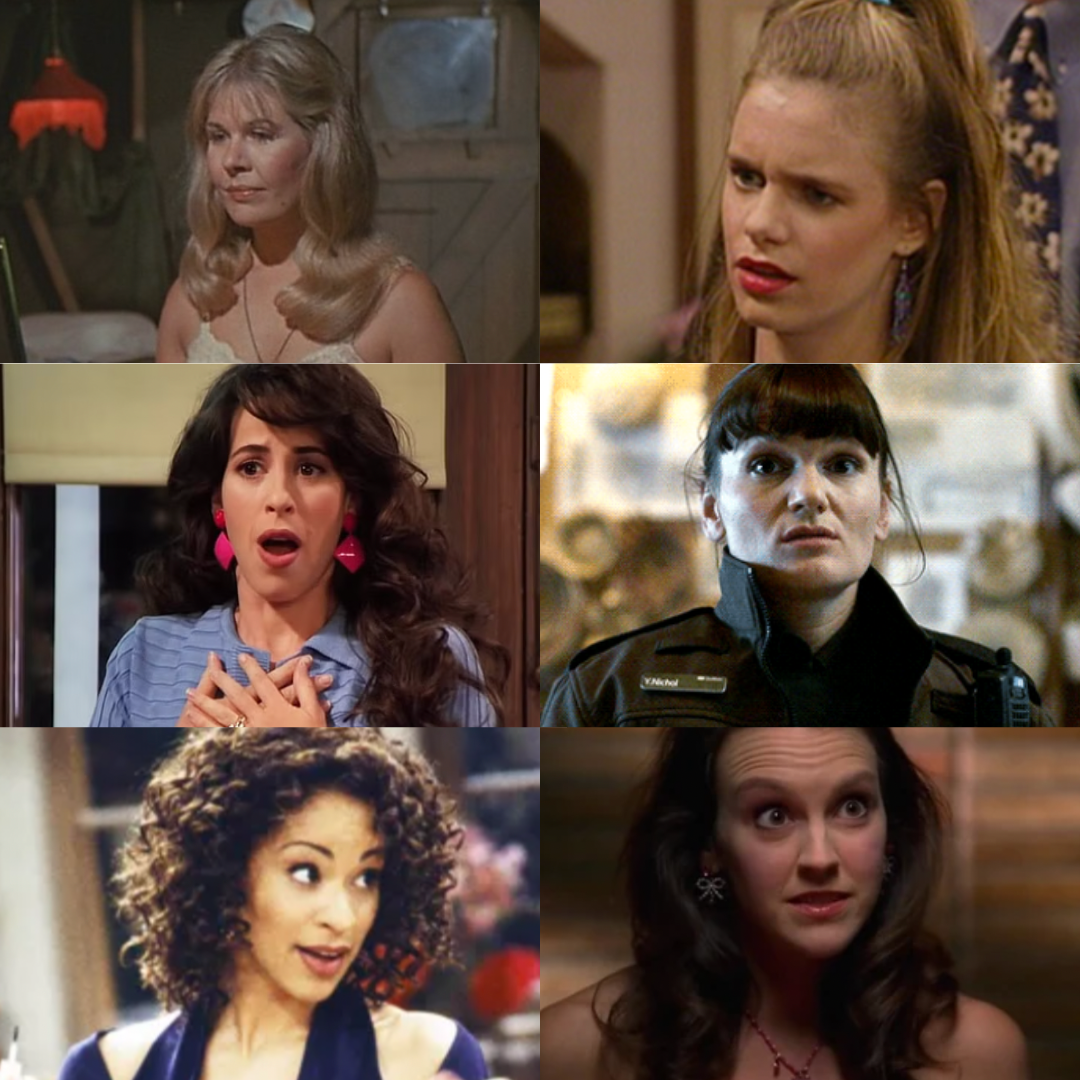In Praise of Annoying Girls
"Did anyone ever tell you you're annoying?"
I remember everything I was wearing, from the ruffles on my skirt to the clip in my hair, when my 13-year-old swim team crush said this, some distinctly cool girls by his side. If you were similarly branded an 'annoying girl,' I bet you have equally vivid memories of humiliation. I may have been clueless about many things as a tween, but I knew that "annoying" was one of the worst labels I could get. It's also one I haven't been able to shake.
I'm not alone. Popular culture has not been kind to the annoying girls. While nerds have claimed their revenge, annoying girls remain little more than a focal point of communal abuse in movies and sitcoms – and in life. They aren't just you-love-to-hate-them characters. They galvanize others by generating communal disdain, giving the audience cheap laughs. It's the price to pay for breaking life's cardinal rule. Women must be tolerable and nothing more.
Tolerable women aren't filter-free know-it-alls (like Daisy Wick from Bones) or dizzy airheads (like The Fresh Prince of Bel-Air's Hilary Banks). They aren't rule-enforcing killjoys (like Major Margaret Houlihan on M*A*S*H), nor doltishly ignorant of unwritten rules (Yvette Nichol on Three Pines). They certainly aren't people who embody all these traits simultaneously (we're looking at you, Janice from Friends). You'd think that crafting annoying girls would offer plenty of rich, nuanced material for writers, but the opposite is often true. When you're annoying, your very existence often feels like a cheap joke made at your own expense.
TV's annoying boys fare far better. The Office's Michael Scott, The Big Bang Theory's Sheldon Cooper, and Family Matters' Steve Urkel are undeniably aggravating, but underlining every episode is a reminder that they mean well, that you must pay the price for such genius, that deep down they have a heart of gold. There are few such role models available to girls. Whether they're loyal, dependable friends (like Kimmy on Full House) or intelligent, pretty, and kind (Friends' Janice) doesn't matter. Everyone knows that annoying girls don't get a redemption arc.
I contacted screenwriter Pam Mandel, a memoirist and award-winning screenwriter from Seattle, Washington, to get her insights into character development and how the "annoying girl" archetype is used in television and movies. In doing so, I gained some valuable insights into my own life. Mandel says: "I feel like this particular character is often misogyny veiled in humour. It doesn't have to be that way, but when this character is secondary, there's so much mockery. When they're primary – for example, I found the entire quartet in Girls annoying – they're allowed to be more complex."
Mandel's insights hit me with a powerful punch. I realized that what I've hated about the label of being annoying isn't just that it's lonely, awkward, and frustrating. It's that you're not even the main character in your own life. You're just someone else's comedic catalyst. However, when I think of famously annoying girls through the lens of being a primary character, they're suddenly not so one-dimensional. In fact, they're absolute heroes.
Daisy Wick earned a doctorate, did field research around the world, and lived her best life as a sexually adventurous woman. Hilary Banks was confident and ambitious, and she knew exactly what she wanted. Major Margaret Houlihan protected her nurses and patients under dire circumstances. Yvette Nichol did her very best, no matter how little support she had, and she caught bad guys when it was least expected of her. Janice Litman-Goralnik gives up her perfect family home out of respect for her marriage and that of her old flame, Chandler Bing. Kimmy Gibbler marches to the beat of her own drum and is unfailingly devoted to her friends.
Pam Mandel has a favourite annoying girl who exudes leading character energy. She shares: "You know who's great? Mabel in Gravity Falls. Mabel is loud, weird, and kind of unpredictable, but she has big feelings. She's creative. She's a cheerleader for her friends and family. Okay, it's a cartoon, and she's these things in an outlandish way, but she gets to be off-the-charts herself, and we learn to really appreciate her." Her love of Mabel has reminded me that when annoying girls win, they win BIG. Anne from Anne of Green Gables gets the scholarships, the awesome best friend, and the cutest boy in school in all the books, movies, and TV adaptations (most recently on Anne With An E.)
Mandel's distinction between primary and secondary characters has been the catalyst for reimagining my own life. Am I really that annoying? Or am I simply audaciously unconcerned with being tolerable? Now I know I need to craft my happy ending and generate my own character arc, the kind that comes from embracing primary character energy. It's got to be better than the alternative. I've tried to walk the impossible tightrope. I've hedged every bet. I've diminished my intelligence, put myself down, and denied strong emotions in a bid to be more unproblematic. It's an exhausting process, one without any end in sight.
And you know what? I'm still annoying – to some people. Since I can't shake off the label, I might as well shake up my perspective. Some people might think I'm a know-it-all, but others will see me as brilliant and one hell of a trivia night partner. Others might find my unbridled enthusiasm embarrassing and cringeworthy, but perhaps others will embrace authentic emotion. Maybe I talk too much at parties, or perhaps not enough, but that just makes me intriguing, not annoying – to the right people. To my people.
My swim team crush wouldn't stand a chance now.
